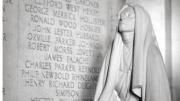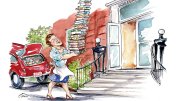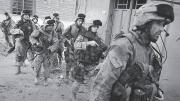“One hundred years after the outbreak of World War I, a group of European Harvard alumni felt the need to recognize the sacrifice of their predecessors one last time before the events of that war are consigned to the archives of distant history,” writes Douglass M. Carver ’59 in his editor’s introduction to The Harvard Volunteers in World War I: One Hundred Years After. Sponsored by the Harvard Clubs of France and the United Kingdom, his book reprints and meticulously updates and expands upon the 1916 volume The Harvard Volunteers in Europe: Personal Records of Experience in Military, Ambulance, and Hospital Service, including a prefatory essay by Saltonstall professor of history Charles S. Maier (see page 55). More than 1,100 Harvard and Radcliffe affiliates were involved in the war; 385 died as a result. Carver’s Roll of Honor adds six more names to the list of the dead long engraved in Memorial Church. His book—a “Centennial monument to the Harvard community”—is available from Amazon.com.
"Harvard Volunteers in World War I: One Hundred Years After" appears in tribute
"Harvard Volunteers in World War I: One Hundred Years After" appears in tribute
Harvard’s World War I participants are honored in an updated volume edited by Douglass M. Carver ’59.

You might also like
Yesterday’s News
A co-ed experiment that changed dorm life forever
A Forgotten Harvard Anthem
Published the year the Titanic sank, “Harvard’s Best” is a quizzical ode to the University.
Highlights from Harvard’s Past
The rise of Cambridge cyclists, a lettuce boycott, and Julia Child’s cookbooks
Most popular
Explore More From Current Issue

Harvard’s Financial Challenges Lead to Difficult Choices
The University faces the consequences of the Trump administration—and its own bureaucracy

Novelist Lev Grossman on Why Fantasy Isn’t About Escapism
The Magicians author discusses his influences, from Harvard to King Arthur to Tolkien.






